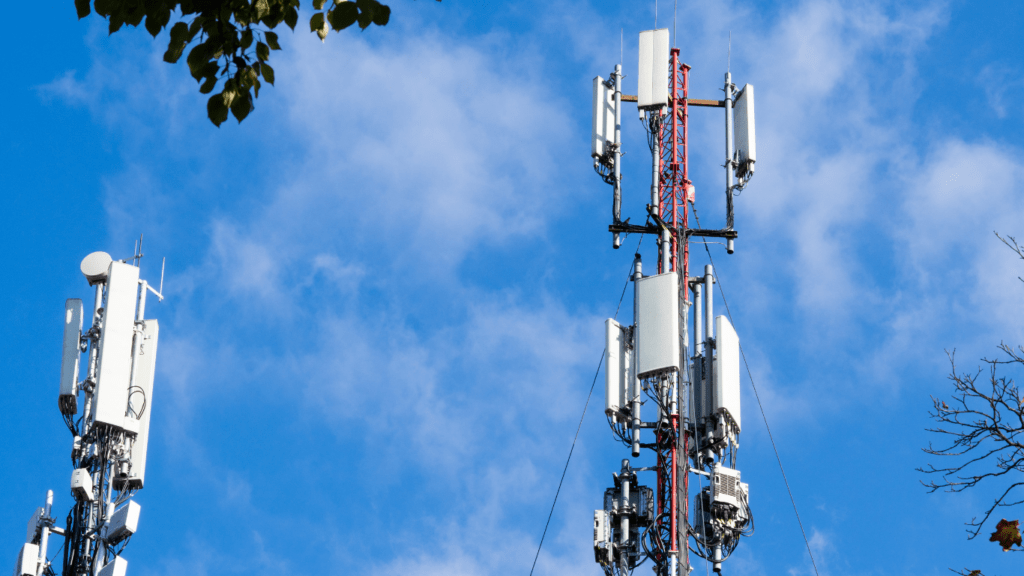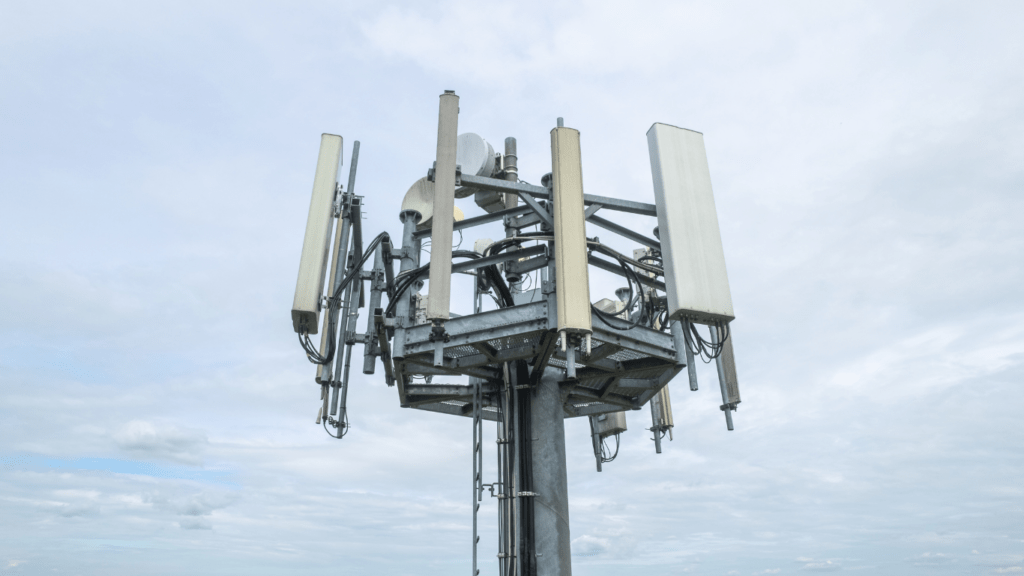As a seasoned tech writer, I’ve witnessed the transformative power of 5G technology in reshaping the landscape of mobile app development. The advent of 5G has ushered in a new era of possibilities, promising lightning-fast speeds and ultra-low latency that are set to revolutionize how we interact with mobile applications. In this article, I’ll delve into the profound impact that 5G is having on the way developers design, deploy, and optimize mobile apps for an increasingly connected world.
With 5G networks becoming more prevalent, developers are presented with a golden opportunity to push the boundaries of what’s possible in app development. The enhanced capabilities of 5G not only enable richer user experiences but also open doors to innovative functionalities that were previously unattainable. Join me as we explore the exciting ways in which 5G is shaping the future of mobile app development.
Evolution of Mobile App Development
Evolution in mobile app development has been greatly influenced by the rapid advancements in 5G technology. As a mobile app developer, I’ve witnessed firsthand how the transition to 5G has reshaped the landscape of app creation. The enhanced speed and reduced latency provided by 5G networks have opened up a whole new realm of possibilities for developers like me.
In the early stages of mobile app development, speed and connectivity limitations often posed challenges. However, with the advent of 5G technology, these constraints have significantly diminished. The increased data transfer rates and lower latency levels allow for the seamless integration of complex features and functionalities into mobile applications.
Moreover, the evolution of mobile app development in the 5G era goes beyond just speed enhancements. The improved network capabilities have paved the way for the implementation of cutting-edge technologies such as Augmented Reality (AR) and Virtual Reality (VR) in mobile apps. These immersive experiences are now more accessible to users, thanks to the support provided by robust 5G networks.
Additionally, the evolution of mobile app development has led to a paradigm shift in user expectations. As users become accustomed to faster speeds and enhanced performance, they now demand more engaging and interactive mobile applications. This shift has compelled developers to focus on creating feature-rich apps that leverage the full potential of 5G technology to deliver unparalleled user experiences.
The evolution of mobile app development in the 5G era has been transformative, enabling developers to push the boundaries of innovation and creativity. As I continue to explore the possibilities afforded by 5G networks, I remain excited about the endless opportunities to enhance mobile app development and deliver exceptional user experiences.
Advantages of 5G Technology
I’ll now delve into the specific advantages that 5G technology brings to mobile app development.
Ultra-Fast Speeds
5G technology provides remarkable ultra-fast speeds, significantly enhancing the performance of mobile apps. With speeds up to 100 times faster than 4G, developers can create apps that deliver seamless and instant content delivery. This speed boost enables the integration of high-definition videos, real-time multiplayer gaming, and swift data processing, leading to unparalleled user experiences.
- Low Latency
One of the key advantages of 5G technology is its low latency, minimizing delays in data transmission between devices and servers. With latency reduced to milliseconds, mobile apps can respond instantaneously to user inputs, making interactions smoother and more responsive. This low latency is crucial for applications like IoT devices, autonomous vehicles, and live video streaming, ensuring real-time connectivity without disruptions. - Higher Capacity
5G technology offers a higher capacity to support a massive number of connected devices simultaneously. This increased capacity enables mobile apps to handle a vast amount of data traffic efficiently, catering to a growing user base without compromising performance. Developers can design apps with intricate features and functionalities that demand substantial bandwidth, making 5G ideal for delivering complex applications that require robust network support.
Enhanced User Experience in Mobile Apps
Developers are constantly seeking ways to enhance user experience in mobile apps. With 5G technology, I can leverage its capabilities to provide an even more immersive and seamless user interaction. The ultra-fast speeds of 5G, up to 100 times faster than 4G, allow me to deliver content instantaneously, ensuring users experience minimal delays when accessing information or using app features. This speed boost not only improves user satisfaction but also opens up new possibilities for content-rich applications.
By utilizing the low latency of 5G, I can ensure that user inputs are responded to instantaneously, creating a smooth and responsive app experience. Imagine being able to interact with IoT devices or engage in live streaming with no perceptible lag – it’s all made possible by the virtually instantaneous communication enabled by 5G technology. This low latency feature of 5G adds a new dimension to user interactions, making mobile apps feel more intuitive and dynamic than ever before.
Moreover, the higher capacity of 5G networks allows me to support a multitude of connected devices simultaneously, paving the way for the development of more sophisticated and interconnected apps. Whether it’s managing smart home devices, participating in multiplayer gaming, or collaborating on work projects through mobile apps, the robust network support provided by 5G ensures a seamless user experience across various use cases.
The advancements brought about by 5G technology are revolutionizing mobile app development and reshaping the way users interact with applications. By capitalizing on the speed, low latency, and capacity of 5G networks, I can create mobile apps that offer unparalleled user experiences, setting new standards for app performance and interactivity.
Challenges and Opportunities for Developers
Developers face both challenges and opportunities in leveraging 5G technology for mobile app development. With the unprecedented speed and low latency of 5G networks, developers can create innovative apps that redefine user experiences. However, they also encounter new obstacles that come with harnessing this cutting-edge technology.
Challenges:
- Compatibility: Ensuring that applications are compatible with the diverse range of 5G devices can be a significant challenge for developers. They need to optimize app performance across various devices to maximize the benefits of 5G technology.
- Data Security: The faster speed of 5G networks brings concerns about data security and privacy. Developers must implement robust security measures to protect sensitive user information from potential cybersecurity threats.
- Complexity: Developing apps that fully utilize the capabilities of 5G networks requires a deep understanding of the technology. Navigating the complexities of 5G infrastructure and integrating advanced features can pose challenges for developers.
- Enhanced User Experience: 5G technology enables developers to deliver immersive and interactive experiences to users. By harnessing the power of 5G networks, developers can create apps that offer seamless real-time interactions and high-quality multimedia content.
- Innovative App Functionality: The high speed and low latency of 5G networks unlock new possibilities for app functionality. Developers can explore augmented reality (AR), virtual reality (VR), and immersive gaming experiences that were previously limited by slower network speeds.
- Increased Market Reach: Creating apps optimized for 5G networks allows developers to tap into a growing market of 5G users. By staying ahead of the curve and developing app experiences tailored to the capabilities of 5G technology, developers can reach a broader audience and stay competitive in the mobile app market.


 Leeyo Mattisonell, the founder of The Code Crafters Hub, is a trailblazer in the realm of software development and technology. With a passion for advancing the field, Mattisonell established The Code Crafters Hub as a premier destination for both software professionals and enthusiasts. His vision was to create a platform that not only delivers the latest industry news but also offers valuable insights into web and game development. Under his leadership, the hub has become a vital resource for understanding emerging technologies, including the Internet of Things (IoT) and cybersecurity trends. Mattisonell’s dedication to providing cutting-edge content ensures that the platform remains at the forefront of the ever-evolving tech landscape.
Mattisonell’s commitment to excellence is evident in the comprehensive and timely updates featured on The Code Crafters Hub. By focusing on dynamic web development techniques, game development innovations, and practical cybersecurity tips, he has positioned the hub as an essential tool for developers at all stages of their careers. Located in Warren, MI, and operating from 9 AM to 5 PM, the hub reflects Mattisonell’s dedication to fostering a knowledgeable and secure tech community. His leadership continues to drive the platform’s success, making it an invaluable resource for anyone looking to stay ahead..
Leeyo Mattisonell, the founder of The Code Crafters Hub, is a trailblazer in the realm of software development and technology. With a passion for advancing the field, Mattisonell established The Code Crafters Hub as a premier destination for both software professionals and enthusiasts. His vision was to create a platform that not only delivers the latest industry news but also offers valuable insights into web and game development. Under his leadership, the hub has become a vital resource for understanding emerging technologies, including the Internet of Things (IoT) and cybersecurity trends. Mattisonell’s dedication to providing cutting-edge content ensures that the platform remains at the forefront of the ever-evolving tech landscape.
Mattisonell’s commitment to excellence is evident in the comprehensive and timely updates featured on The Code Crafters Hub. By focusing on dynamic web development techniques, game development innovations, and practical cybersecurity tips, he has positioned the hub as an essential tool for developers at all stages of their careers. Located in Warren, MI, and operating from 9 AM to 5 PM, the hub reflects Mattisonell’s dedication to fostering a knowledgeable and secure tech community. His leadership continues to drive the platform’s success, making it an invaluable resource for anyone looking to stay ahead..
